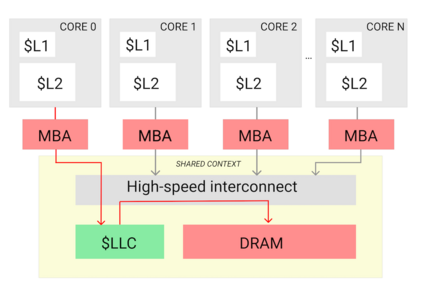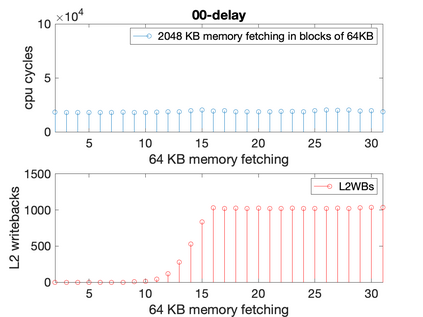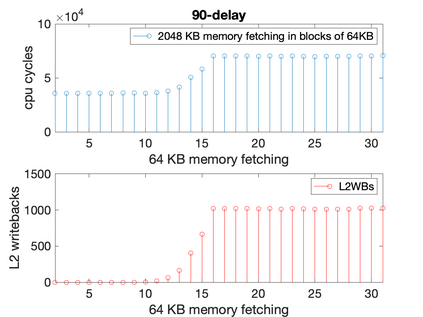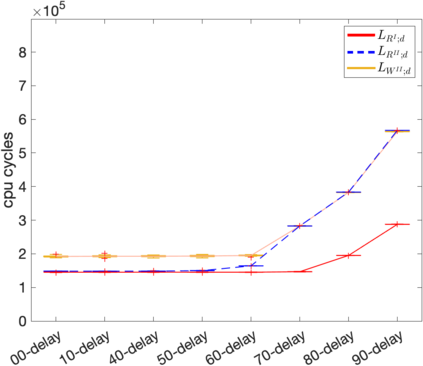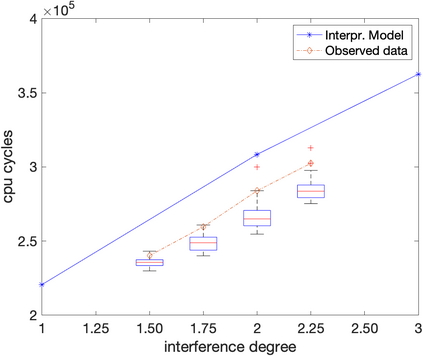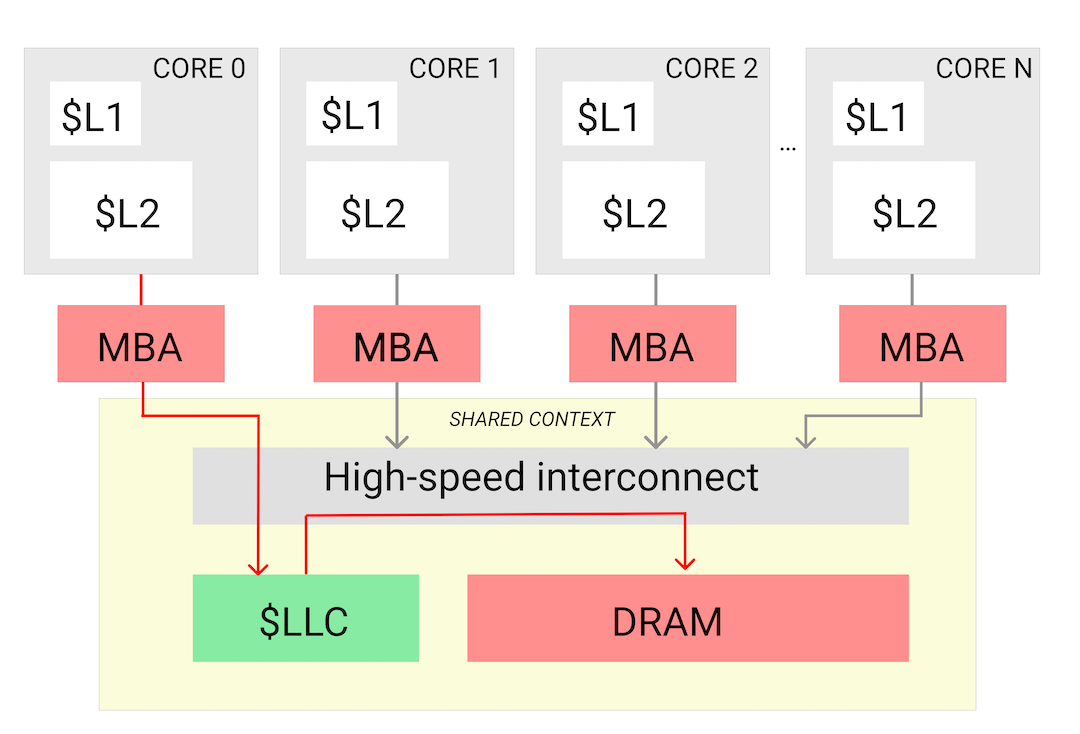Industries are recently considering the adoption of cloud computing for hosting safety critical applications. However, the use of multicore processors usually adopted in the cloud introduces temporal anomalies due to contention for shared resources, such as the memory subsystem. In this paper we explore the potential of Intel's Memory Bandwidth Allocation (MBA) technology, available on Xeon Scalable processors. By adopting a systematic measurement approach on real hardware, we assess the indirect memory bandwidth limitation achievable by applying MBA delays, showing that only given delay values (namely 70, 80 and 90) are effective in our setting. We also test the derived bandwidth assured to a hypothetical critical core when interfering cores (e.g., generating a concurrent memory access workload) are present on the same machine. Our results can support designers by providing understanding of impact of the shared memory to enable predictable progress of safety critical applications in cloud environments.
翻译:工业最近正在考虑采用云计算来托管安全关键应用程序。然而,由于对记忆子系统等共享资源存在争议,通常在云中采用的多芯处理器的使用带来了时间异常。在本文件中,我们探讨了Intel的记忆带宽分配(MBA)技术的潜力,该技术存在于Xeon可缩放处理器上。通过对真实硬件采取系统的测量方法,我们通过应用MBA延迟来评估间接记忆带宽限制,这表明只有给定的延迟值(即70、80和90)在我们所处的环境中是有效的。我们还测试了在同一机器上存在干扰核心(例如产生同时存取记忆工作量)时,从假设关键核心得到的带宽。我们的成果可以帮助设计者,通过了解共享记忆的影响,从而在云环境中安全关键应用方面实现可预测的进展。

